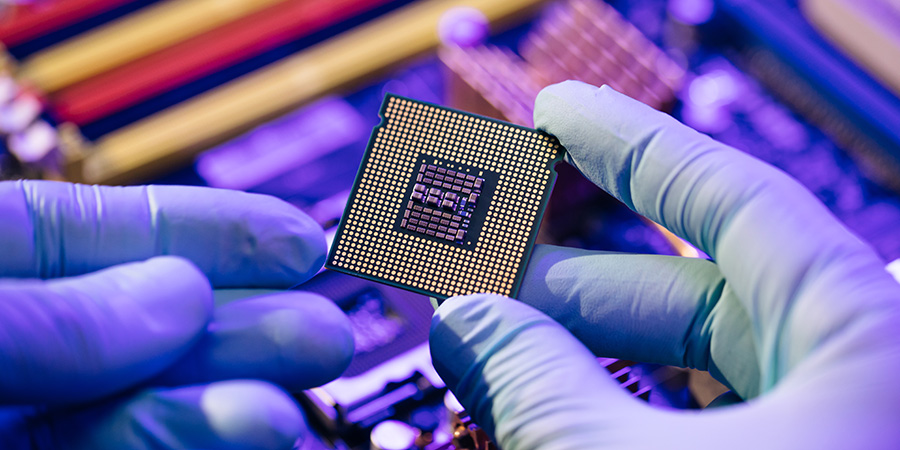The dawn of next-generation chips marks a pinnacle in semiconductor technology, embodying strides in design, materials, manufacturing processes, performance, and packaging. This heralds a new era of innovation, promising enhanced capabilities and efficiency in semiconductor devices.
As computing tasks grow increasingly demanding and data-intensive, next-generation chips promise faster speeds and enhanced energy efficiency, meeting the needs of modern applications. However, the industry faces formidable challenges on multiple fronts, including technological complexities, supply chain disruptions, and geopolitical tensions, especially with the ubiquitous integration of artificial intelligence (AI) in the next five years.
Shifting Geopolitical Trade Dynamics
In a recent report, GlobalData, a prominent data and analytics company, stressed the urgent need for the chips industry to swiftly evolve to meet the escalating demand for more capable chips.
In response to these challenges, the next-generation chips sector is expanding its capacity to match the growing demand. Yet, amidst a backdrop of increasing technology nationalism, there's a significant reconfiguration of supply chains as friend-shoring initiatives take precedence. GlobalData's latest thematic report, 'Next-Generation Chips', delved into how the industry is adapting to these shifting trade dynamics.
Isabel Al-Dhahir, Principal Analyst, Thematic Intelligence at GlobalData, highlighted the vulnerabilities facing the chips industry amidst increasing technology nationalism and the ongoing US-China trade war. She emphasized that these factors are destabilizing global supply chains, presenting significant challenges for the industry. Additionally, Al-Dhahir raised concerns about workforce readiness and a potential skills gap, further complicating the industry's outlook. Moreover, she noted the escalating energy demands of data centers as another factor contributing to the industry's precarious position, adding an additional layer of uncertainty to its future prospects.
In the advanced chips industry, a small group of key players, such as ASML (equipment supplier), NVIDIA (chip designer), and TSMC (foundry), exert significant dominance across the supply chain. Relying exclusively on a limited number of suppliers and vendors has posed challenges for companies, particularly as the US-China trade war disrupts longstanding supply chain arrangements.
Al-Dhahir continued, “China’s advanced chip ambitions have been hindered by US sanctions, which extend to key companies operating in the Netherlands and Japan. In response, China will likely maintain its efforts to build a competitive and self-reliant chips industry, although this is a long-term ambition.”
Pioneering In-House Custom Chip Design
Amidst shifting geopolitical dynamics, major players in the tech industry are increasingly looking to design their own chips as a means of reducing reliance on external vendors. Companies like Alibaba, Apple, Amazon, Microsoft, and Meta are investing in in-house custom chip design initiatives, aiming to assert greater control over their supply chains. This trend could potentially reshape the balance of power within the industry, although its complete ramifications are yet to unfold. However, this development also means that these tech giants will now be vying for the same limited foundry capacity, adding another layer of competition to the landscape.
Al-Dhahir added, “With so many delicate moving parts and rising uncertainty on all fronts, the chips industry is swiftly evolving. Strategies built on political, geographic, and technological diversification are underway as companies and countries alike look to safeguard themselves against future disruption.”





